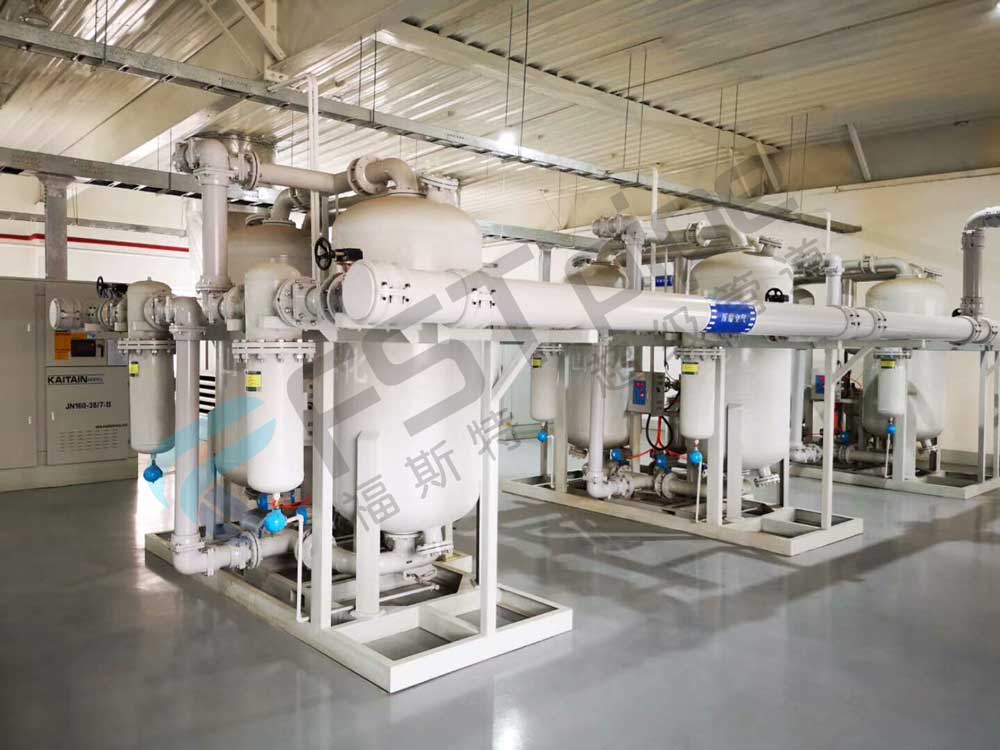-
You are here:
- Home
- > News
- > Industry Information
The main factor of air compressor explosion
Main factors inducing explosion of air compressor
(1) Compressed air temperature In the operation of the air compressor, if the temperature of the compressed air exceeds a certain limit value, it will promote the accelerated heating of the deposit to cause auto-ignition. This limit is a variable value that is related to the thickness density of the deposit.
2) Air compressor exhaust temperature
The work consumed in the first-stage exhaust process is the main source of gas temperature rise, long exhaust time, high power consumption and high temperature. The length of the exhaust gas after the first stage compression depends on the actual first-stage exhaust pressure. The decrease of the first-stage exhaust pressure is one of the main reasons for the increase of the exhaust gas temperature. The main factor is the reduction of the spring stiffness, the first-stage intake. The valve is not closed tightly and some high pressure gas leaks.
(3) Sediment thickness
If the exhaust gas temperature does not increase and the thickness of the deposit in the compressed air pipe increases, it will reduce the autoignition temperature limit of the deposit and spontaneous combustion will occur. The thicker the deposit, the lower the flammability limit temperature; the thinner the deposit, the higher the flammability limit temperature. If the thickness of the sediment is 1mm, the limit auto-ignition temperature is 160 degrees Celsius.
(4) The flow rate of the compressed air will increase the temperature of the compressed air when the flow rate of the compressed air is lowered. This phenomenon is most likely to occur for a compressed air system composed of multiple air compressors. When the compressed air flow rate is reduced, the sediment auto-ignition temperature limit is also lowered. The two-pole row of cylinders to the gas storage tank is the most sensitive area. Coolers and gas tanks are the most susceptible to explosions. If the carbon deposit in the compressed air pipe is quite thick, the flow rate suddenly drops or falls to zero when the air compressor is stopped or the operating conditions are adjusted. It is highly prone to the danger of spontaneous combustion of sediments. The time when the air compressor explodes is most likely to occur during the period when the mine load is low, and the shift time is the dangerous time period for the air compressor to explode.
(5) Air humidity
As the humidity of the inhaled air increases, a large amount of superheated steam is generated during the compression process, and the loose deposit adsorbs a large amount of superheated steam and dissipates heat, so that the exhaust gas temperature rises and the deposit spontaneously ignites. Air compressor explosions are also prone to rain and fog.
(6) Frequent unloading
At the moment when the air compressor starts to unload, the operation time of the secondary suction valve is 1.5~2s behind the first-stage suction valve, and it is still in the normal working state, causing the temperature of the two-pole exhaust gas to rise sharply; when the unloading ends When returning to normal operation, the cut air is heated by the cylinder and the piston. The temperature rises from normal temperature to about 150 degrees Celsius, and the secondary exhaust temperature of the high temperature air can reach 250 degrees Celsius, so frequent unloading can also cause the air compressor to explode. The deposits produce a large amount of carbon monoxide after spontaneous combustion, and can explode when compressed air contains 1.5% to 7.5% of carbon monoxide.

